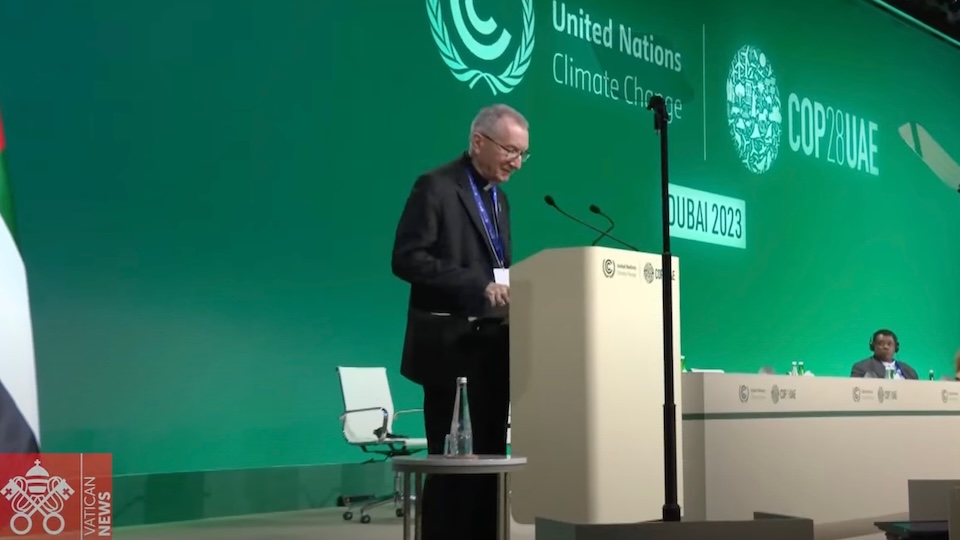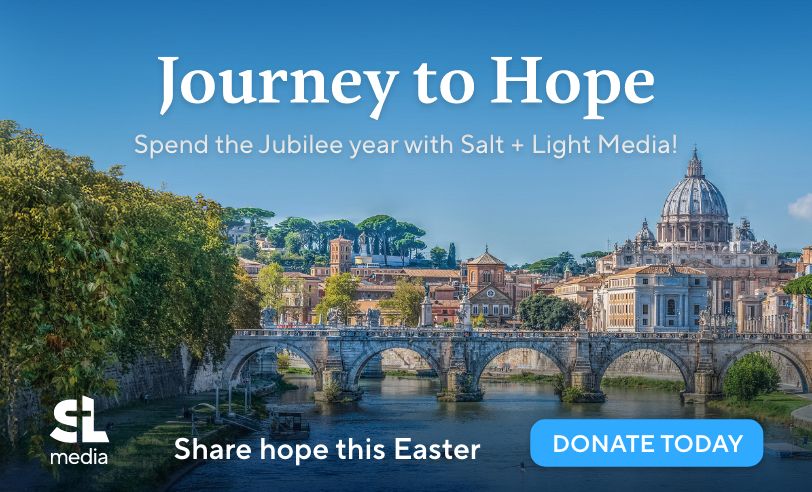

Conference of Parties to the United Nations Framework Convention on Climate Change (COP28): Address of His Holiness
Pope Francis
Monday, December 4, 2023

On Saturday, 2 December, 2023, Vatican Secretary of State Cardinal Pietro Parolin gave Pope Francis' address to the COP28 conference in Dubai, UAE. The Holy Father asserted that "It is up to this generation to heed the cry of peoples, the young and children, and to lay the foundations of a new multilateralism. Why not begin precisely from our common home? Climate change signals the need for political change. Let us emerge from the narrowness of self-interest and nationalism; these are approaches belonging to the past. Let us join in embracing an alternative vision: this will help to bring about an ecological conversion."Read the full text of his address below:
Conference of Parties to the United Nations Framework Convention on Climate Change (COP28) Address of His Holiness
Expo City, Dubai Saturday, 2 December, 2023
Related Articles:
Category: Apostolic Journeys, Environment, Laudato Si', Pope Francis
Tag: Apostolic Visit to Dubai, Cardinal Parolin, climate change, COP28, environment, Fratelli Tutti, Laudato Si', Pope Francis
Pope’s Prayer Network Monthly Intention for May 2025
Wednesday, May 7, 2025
 Pope Francis
Pope Francis
We pray that through work, each person might find fulfillment, families might be sustained in dignity, and that society might be humanized.
The ecumenical legacy of Pope Francis | One Body
Saturday, May 3, 2025
 Nicholas Jesson
Nicholas Jesson
Nicholas Jesson reflects on the late pope's achievements on the journey to Christian unity and human fraternity.
Cardinal Parolin’s homily for the Second Day of the Novendiali
Sunday, April 27, 2025
 Cardinal Pietro Parolin
Cardinal Pietro Parolin
On Divine Mercy Sunday, 27 April, 2025, Cardinal Pietro Parolin, Pope Francis' Secretary of State, presided over Mass and delivered the homily for the Second Day of the Novendiali and the Jubilee of Adolescents.
Homily for the Funeral Mass of Pope Francis
Saturday, April 26, 2025
 Cardinal Giovanni Battista Re
Cardinal Giovanni Battista Re
At 10 a.m. this morning, on the parvis of the Patriarchal Vatican Basilica, the Esequial Mass for the late Roman Pontiff, Pope Francis, was celebrated with deep reverence and solemnity. The Esequial Liturgy was concelebrated by the Cardinals and the Patriarchs of the Eastern Catholic Churches, with His Eminence Cardinal Giovanni Battista Re presiding. Read the full text of Cardinal Giovanni Battista Re’s homily below.
Pope Francis: Obituary
Monday, April 21, 2025
 Salt + Light Media
Salt + Light Media
“That is how the name came into my heart: Francis of Assisi. For me, he is the man of poverty, the man of peace, the man who loves and protects creation.” (Address to Representatives of the Communications Media, March 16, 2013) We are deeply saddened by the death of our beloved Pope Francis on April […]
SUPPORT LABEL
$50
$100
$150
$250
OTHER AMOUNT
DONATE










